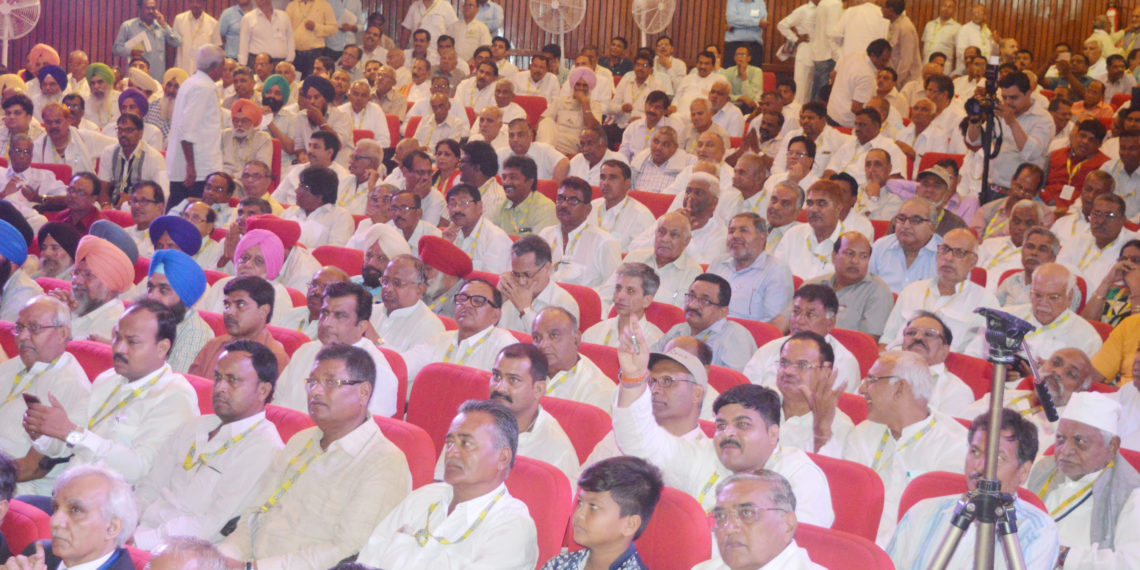By I C Naik
My School friend called me up from US. “ I read all your posts on www.indiancooperative.com especially about Associate Members. Recently I have become an Associate member in Cooperative housing society in Mumbai. My Mom gifted her 50% share in the flat which she was gifted by her Mom 25 years ago. Her Mom gifted 50% to my elder bro who looked after the flat as well as my Mom all these years as he is a Primary Member. I want my share in the flat realized in cash.
My Mom insists Bro lives in that flat and it should not sold. She had a brief stay in US soon after our father passed away early this year. It was her love for me that she gave away her whole share to me after my father’s death. My bro is quite adamant. Also he probably expected half of her share. I can’t return to India, any way it is one BHK flat too small for me. I seek your support.
I asked him to SMS his e.mail ID. He also gave me his consent to post the question answer n www.indiancooperative.com
This is a peculiar situation an Associate Membership is facing. When Karta of HUF dies and the family has a flat, Associate Membership comes under tension. Upon death of Karta a next generation eldest member becomes Karta under Hindu Succession Act and becomes a Primary Member unless The ldest person gives up. Other co-parcenars may join as Associates. But this flat is not an HUF; Two siblings are equal Co-owners of a flat and indivisible Dwelling unit gifted in parts. This is a case of Co-ownership. No provision of the MCS Act 1960 can help Associate to realize his share, as his rights are solely decided by Primary member.
If an elder brother wants to live in co-owned flats the management committee cannot help Associate member though half the flat belongs to him also. In fact as per the registered bye laws (Presumably Model 1984) No 27 “No associate member shall have any rights or privileges of a member except as provided under Section 27(2) of the Act.”
And Section 27(2) reads: Where a share of a society is held jointly by more than one person, [the person whose name stands first in the share certificate, if present, shall have the right to vote. But in his absence the person whose name stands second, and in the absence of both, the person whose name stands next, and likewise, in the absence of the preceding persons the person whose name is next on the share certificate, who is present and who is not a minor, shall have the right to vote.
Bye Law No 26 provides: The member, who is deemed to have been allotted the flat under the bye-law No. 78(a) of the bye-laws of the society shall have a right to occupy the flat…..”
Combined effect of Bye Law No 26/27 is that the Associate member is at mercy of the Primary Member, to occupy the flat.
When it comes to selling the flat (as the NRI Brother desperately wants, he cannot do anything as the management committee will consider the Notice of transfer of flat filed under Bye Law No 40.
Joint ownership of a property has been recognized in law under the Transfer of Property Act 1882 enacted by the British. Section 44 of this Act, deals with transfer by one of the co-owners of his share. Where one co-owners of immovable property legally competent in that behalf, transfers his share of the property, the transferee acquires the transferor’s right to joint possession or use of the property. He can enforce a partition of the property. However division of a Dwelling Unit has been protected to risks of getting in to ownership outside the undivided family to which it belongs by inserting a following proviso:
“Where the transferee of a share of a dwelling house belonging to an undivided family is not a member of the family, nothing in this section shall be deemed to entitle him to joint possession or other common or part enjoyment of the house.” This means the NRI Associate cannot sale his share outside the family. His bro is not in a position to buy the other half. He was hoping to own 75% which would have helped find the way out.
Can any reader help the NRI Associate to get value in cash for his share in the Flat?





















































